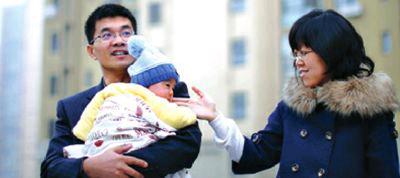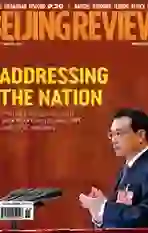Part of the Family
2014-03-28ByduncanCole
By+duncan+Cole
If you have been privileged to be a part of Chinese society, you cannot think about it without considering the incredible strength of the family. I have visited or lived in over 70 countries and I have not seen another society that is bound together so tightly by familial ties.
My nine years here have shown me this through many windows: that of students and their parents; colleagues and their children; friends and their family networks. But most of all it has come from my experience with my own extended family. I married a beautiful Chinese woman eight years ago who is part of a large family. I was immediately welcomed as an integral part of it. To a Westerner this is no small thing. I felt very humble to be accepted—unconditionally. Cousins are regarded as brothers and sisters, and brothers and sisters are closer than in any Western family that I have known. Children are doted upon, some would say to the extent of being spoiled. Grandparents are considered to curate the wisdom of the family, and are always consulted on major issues. There is no scrap-heap for older family members, and there is no “use-by” date.
One of the themes that threads its way through all of my writing about China is the strength embodied in the family unit. Filial piety is a tradition that has not been absolutely washed away with modernism, and through this, family strength stays intact. I have hosted many post-graduate students in Australia and I have noticed more than anything that there is a grieving for the loss of family contact. We hosted one young student who was absolutely inconsolable until her father, and then her mother, flew out from China to be with her. She had all of the comforts of her own home, and probably more, but she did not have the anchor of family proximity.
My first two years in China were spent teaching at a military academy. Most of my students were from working class families, and as such, were quite hardened to lifes ups and downs. No niceties were expected or given. They just got on with life in an unforgiving environment. Emotions were things for other people. That is, until family came into play. I have seen the toughest of these men reduced to tears because one of their kin was unwell.
I was recently invited to one of my students homes to join in the celebration of Buddhas birthday. I spent the afternoon and early evening in the company of not only her family, but over 100 people from their “village.” It was an amazing experience. Her neighborhood was full of little alleyways and hidden passageways and stairways—if I had not had my students mother as a guide I would have become completely lost. An uncle greeted me warmly at the top of one of the stairways, and escorted me the rest of the way to his home, where the festivities were already underway.endprint
There was a small crowd in the apartment, and two bedrooms had been turned into additional dining rooms, with the beds turned up to the walls to make room. There were over 20 of my students from English classes crowded into one room to share the festivities. After the eating part of the celebration was over, the tables were quickly cleared and the conversations and drinking games became far more animated. Rock, Paper and Scissors and Rock was played with a vigor and enthusiasm that I have not known before.
I have never before experienced the warmth and happiness that exudes naturally from these people. They are a simple, unaffected group who are concerned with the welfare of family and friends. They are extremely warm in a social context, and communication is not all that difficult, because it is the communication of genuine love for fellow humans.
When I return to Fujian there will be a hundred or more people who I can call friends. More than that, I am privileged to be called part of the big Chinese family.endprint
